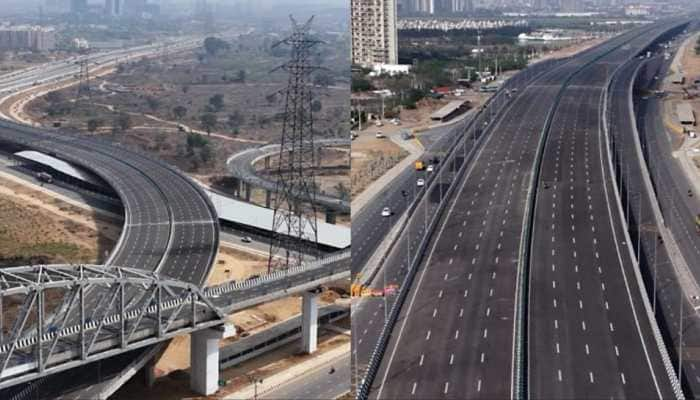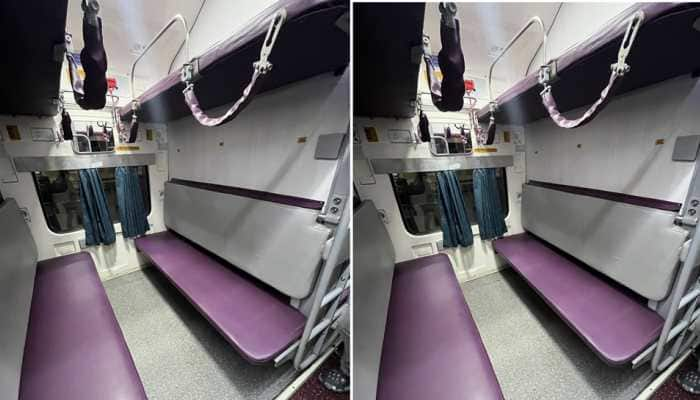Muslim body slams Darul Uloom's fatwa against marrying bankers, says it will create rift among Muslims
The AIMPLB said that issuing a fatwa asking Muslims not to marry people employed in the banking sector is wrong.
Trending Photos
)
LUCKNOW: The All India Muslim Personal Law Board (AIMPLB) on Friday condemned the prominent Islamic seminary Darul Uloom Deoband's new fatwa directing Muslims not to marry into families earning money through banking and related jobs drawing income from interests.
"A large number of Muslims are working in the banking sector. Issuing a fatwa asking Muslims not to marry people employed in the banking sector is wrong. People who issued this fatwa must review this because it will lead to further rift and confusion in the Muslim society. There is no need to issue a fatwa on such things", AIMPLB executive president Khalid Rasheed Firangi Mahali told ANI.
The edict was issued after a person asked Darul Ifta if he should marry his daughter to a man whose father worked in a bank. Darul Ifta replied saying that as per an Islamic law, earnings through interest and any transaction involving interest particularly investment is 'haram' (forbidden).
Islam also forbids business in alcohol, narcotics, school, and weapons as well as any business undertaken with the motive of earning maximum profits, the Islamic seminary informed. Many Islamic scholars and clerics have upheld the fatwa, contending that the religious body's stand was in line with the Islamic law.
"Marrying in such a family is avoidable and not preferable. Those who are nourished with 'haram' (illegitimate) wealth usually they are not good in respect to instinct and morals. Hence, it should be avoided. One should find out a match in some pious family," the seminary's fatwa said in its reply.
"Darul Uloom Deoband is correct in its decision. One should avoid having any social bonds with such a person because everything including his lifestyle would be connected with 'haraam', and then it would be harmful to the person religiously, socially as well as individually", Majlis Ittehad-e-Millat General Secretary Othar Osmani told ANI.
Muslim scholar and Islamic researcher Maulana Nadimul Vajdi said that if a person, knowingly or unknowingly, has indulged in 'haram' earning, the person concerned should quit the job and find another one in which the income was not considered forbidden under the Islamic law.
The Islamic Law or Shariat prohibits paying any fee for renting of money (called riba) for specific periods of time.
It also prohibits any sort of investment in businesses that are considered 'haram' or against the principles of Islam.
It is largely believed that these principles have been derived from the Quran and have been in practice since then.
In Islam, money has no intrinsic value; money, therefore, cannot be sold at a profit and is permitted to be used as per Shariat only.
Islamic banks work on the principles of an interest-free banking. Riba or interest under Islamic law basically means anything in excess - the investor should not make an undue profit from the hard work of the other.
The banks invest the money collected by them in something that is Shariat compliant, that is not haraam and does not involve high risks. Thus, businesses involving alcohol, drugs and war weapons as well as all other high risk and speculative activities are prohibited.
While Islamic Banking is prevalent and is common in Islamic countries, there are plenty of non-Islamic countries that are now opening Islamic "windows" in conventional banks.
These are departments within the banks and they offer Shariat compliant products to customers. China, United Kingdom, United States, Germany are some of the countries that offer Islamic windows.
In India, introduction of Islamic Banking was mooted by Raghuram Rajan in 2008 in his report on the Financial Sector.
As an honorary economic adviser to then Prime Minister Manmohan Singh, he had recommended that interest-free banking techniques should be operated on a larger scale so as to give access to those who are unable to access banking services, including those belong to economically disadvantaged sections of the society.
The recent proposal of RBI for opening of an Islamic Banking window has received mixed reactions from many especially in the light of the recent Uniform Civil Code debate.
Stay informed on all the latest news, real-time breaking news updates, and follow all the important headlines in india news and world News on Zee News.
Live Tv







)
)
)
)
)
)
)
)
)
)
